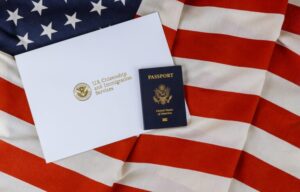As the U.S. government explains, there is some overlap between which relatives a U.S. citizen may sponsor versus which relatives a Green Card holder may sponsor. For example, according to U.S. Citizenship and Immigration Services (USCIS), both groups have the right to sponsor their:
- Spouse
- Child
- Grandchild
There are, however, crucial differences that your family should be aware of before you start any application process. For instance, a citizen may sponsor their parent or sibling, but a permanent resident may not.
If you are still not sure which relatives you can and cannot sponsor, consider getting in touch with an immigration attorney. They can guide you through the sponsorship process.
Want Help Sponsoring a Relative?
Not only can New Frontier Immigration Law answer your questions about what relatives a U.S. citizen can sponsor, but we can also help you apply to sponsor your relative and address any challenges as they arise. Call today to get a strategic session with a member of our team.


